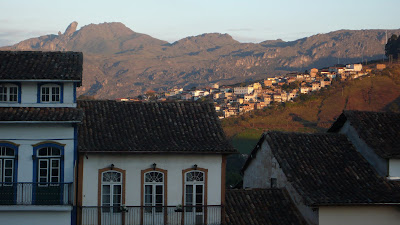


In a beautiful old house in Largo do Boticario, near the Carioca river, one of the few places the river is open to the sky, I meet Barbara Heliodora. I had first heard her name at Festlip, where she was mentioned in connection with translating Shakespeare into the Portuguese language, and in promoting the Portuguese language in general. She has infact translated all of Shakespeare´s works (excluding the questionably authored Two Noble Kinsmen and Edward 111). She has given me a copy of her translation of Pericles - which I am using as a basis for the Pericles Project. We talk about Shakespeare´s language and the process of translation. English is a more compact language than Portuguese and the challenges in translation is to try to stick to the same number of verses. This may mean some omissions but her main concern is to create a text that can be played. Her text tries to rhyme where Shakespeare rhymes; and she sticks to the pentameter. Her mother was a poet and Barbara began translating Shakespeare because she was directing one of his plays and needed the text in Portuguese. She reflects on how Brazil did not inherit a theatrical tradition from Portugal; like the US did from Great Britain. And at the beginning of the 20th century, when Brazil´s theatre began in earnest, it had to compete with cinema. English is a much richer language; it has two roots, Latin and Anglo-Saxon, she says. What about the mix in Portuguese? The influence from Africa, the Angolan languages, what about the indigineous languages? I reply. It is curious that we seem to be arguing in favour of each other´s native culture. What about Camoes? Don´t his sonnets match those of Shakespeare? Yes, but he was a poet, not a dramatist. The Portugues have few dramatists of that time. It is a fascinating conversation which I hope to continue with her.
As I leave I have a look at the Carioca river. Apparently the river has special powers; lasting vigour for the man; lasting beauty for the woman. The word Carioca, meaning someone with the sensibilities and attitude of an authentic Rio inhabitant, is in fact an Indian word used to describe the first European settlers in the area. The word is from the Tupi-guarani, meaning ´white house.´
















